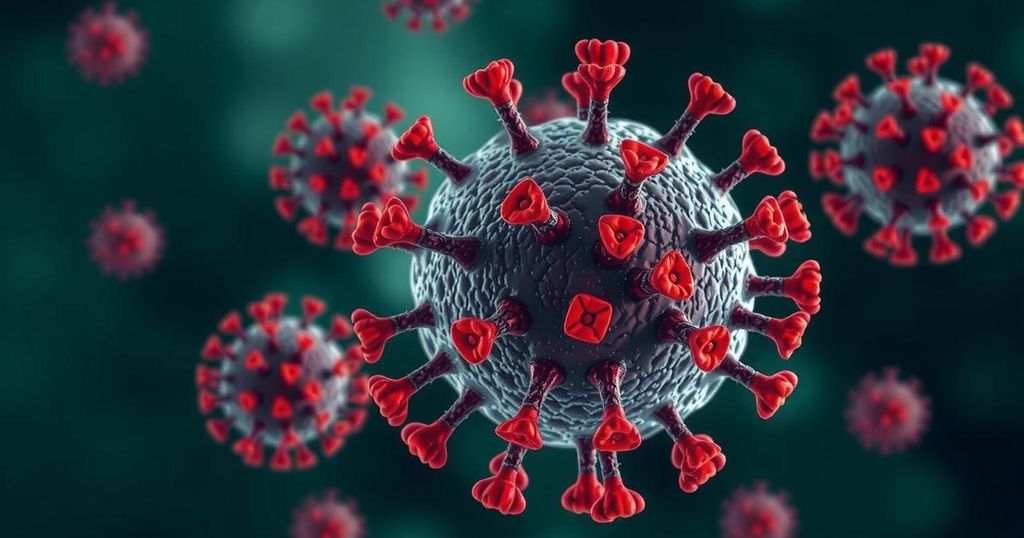Ghana’s Challenge in Eradicating Viral Hepatitis: A Call to Action

Ghana is lagging in its efforts to fight viral hepatitis, according to WHO’s Dr. Kafui Senya. The country may not meet the 2030 elimination target unless key goals are met, such as 90% testing and 65% treatment of diagnosed individuals. Vaccination, particularly of newborns, is crucial, yet Ghana lacks a policy for this. Experts call for increased funding and immediate action to combat hepatitis effectively.
The World Health Organization (WHO) has indicated that Ghana is currently falling short in its campaign against viral hepatitis, specifically highlighting concerns regarding the country’s ability to meet the 2030 elimination targets. Dr. Kafui Senya, the Technical Lead for Hepatitis at the WHO country office, outlined that essential objectives must be achieved, including the testing of at least 90% of individuals with the virus and ensuring treatment for 65% of those diagnosed. While hepatitis C treatment offers a potential cure, hepatitis B requires ongoing antiviral medication to manage the disease effectively and prevent complications such as liver cancer. Dr. Senya underscored the critical role of vaccination in curtailing hepatitis B transmission, advocating for policies to ensure that every newborn in Ghana is vaccinated against the virus. He lamented the absence of a current policy to deliver this vaccine, which would significantly diminish the rates of infection among children over time. Without strategic implementations, including the vaccination of infants, Ghana’s aspiration to eradicate viral hepatitis by 2030 appears increasingly unattainable. The President of the Hepatitis Foundation of Ghana, Theobald Owusu-Ansah, echoed Dr. Senya’s sentiments, emphasizing that the country has been reactive rather than preventive in its approach. He urged the government to prioritize vaccination efforts to avert disease onset and highlighted the critical lack of funding directed at hepatitis B initiatives, contrasting it with the well-resourced HIV programs. Owusu-Ansah proposed urgent measures, including providing a birth dose of the vaccine to curb mother-to-child transmission and integrating hepatitis B treatment into the National Health Insurance Scheme (NHIS) to improve access. In conclusion, both experts stressed that Ghana must undertake immediate and decisive actions to combat hepatitis B to meet the expected elimination milestone by 2030. Failure to adopt these recommended strategies risks prolonging the struggle against this significant public health challenge, underscoring the need for robust financial investment and proactive health policies.
Viral hepatitis, particularly types B and C, poses a considerable health risk to populations worldwide. The World Health Organization has set ambitious goals for eradication by 2030, emphasizing the importance of testing, treatment, and vaccination. In Ghana, the high burden of hepatitis B highlights the necessity for effective public health strategies and resource allocation to enhance disease prevention and management. Hepatitis B infections can have long-term consequences, including liver cancer, making early intervention critical to safeguarding public health.
Ghana’s efforts to combat viral hepatitis are currently not meeting the necessary benchmarks as outlined by the WHO. To align with the 2030 elimination targets, it is essential for the country to adopt comprehensive strategies, including widespread vaccination, accessible treatment options through health insurance, and proactive public health initiatives. Without addressing these critical issues, Ghana risks failing to protect its population from the adverse effects of hepatitis B and C.
Original Source: www.ghanaweb.com








